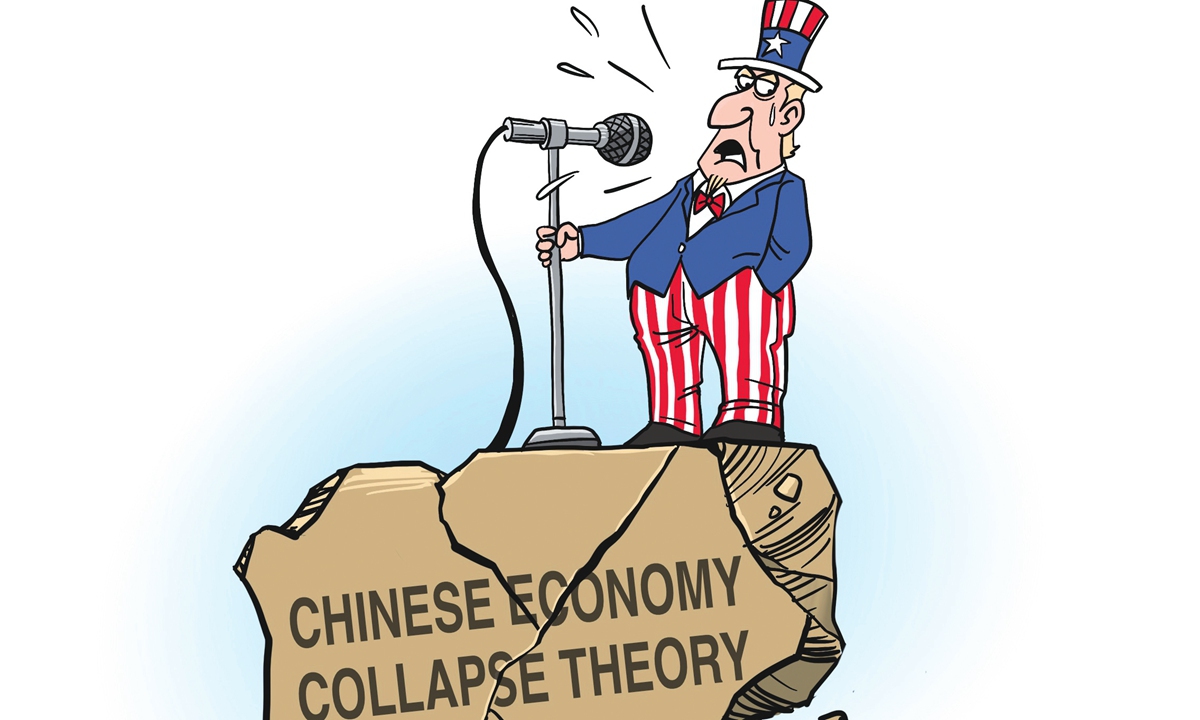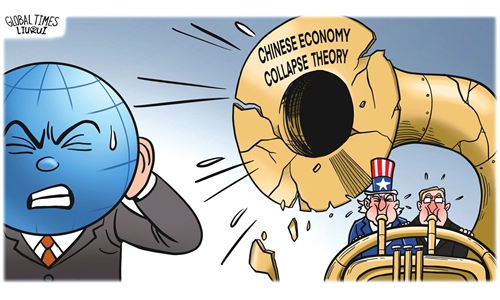
Illustration: Liu Rui/Global Times
The 14th National Committee of the Chinese People's Political Consultative Conference (CPPCC), China's top political advisory body, kicked off its second session on Monday, marking the start of the annual two sessions. The second session of the 14th National People's Congress (NPC), the country's top legislature, is set to open on Tuesday.This year's political gatherings carry extra weight for the Chinese economy, as 2024 will be a crucial year for the realization of the goals and tasks of the 14th Five-Year Plan (2021-25), and the new government is set to submit its Government Work Report to the NPC annual session for deliberation for the first time.
The session usually reviews past achievements and sets development targets for the current year and beyond.
At a time when mainstream Western media outlets are flooded with reports of China grappling with various difficulties - deflation, a property crisis, mounting debt burdens and a foreign capital exodus - the two sessions will serve as a crucial window for the world to observe the country's economic development and understand its policy direction for the year ahead, which Western media outlets said investors are watching closely for signals of a "bazooka-like stimulus."
It's not unusual to see Western media outlets run bearish reports badmouthing the Chinese economy around the major political event every year. For instance, a report published by the Financial Times on February 27, 2023, was headlined "The implications of China's mid-income trap," while CNN ran an article entitled "China's economy had a surprisingly good start to the year, but it may not last" in March 2022.
Yet, China still accomplished its 2023 GDP growth target despite downward pressure and challenges, and the underlying trends of a rebound in the economy and long-term growth remain unchanged. Such economic fundamentals further prove that the ill-intentioned "China collapse" theory cannot withstand the test of time.
Why have Western predictions about a hard landing for the Chinese economy never come true? The key lies in the inability to understand that China's economic development has its own rhythm and policy direction, which will not be influenced by Western hype. The reason why the two sessions are of great importance to China's economy is not only because of the GDP target issued during the meetings, but also because of the policy direction set for achieving stable economic development in the year ahead.
There is no denying that China's GDP target has been the focus of world attention, which is not surprising given its huge economic size and important implications for the global economy. The Chinese government has always stressed the importance of the quality of economic development, rather than just the growth rate, but GDP, as a major measure of a country's economic strength, is still one of the most important economic metrics in China.
It is true that China's economic growth has slowed in recent years amid unprecedented and complicated domestic and external market challenges. This is mainly because the economy is undergoing a period of adjustment and transformation. Despite the difficulties and downward pressure, China is still on a solid footing and its GDP growth rate remains relatively fast among the world's major economies.
If anything, China's consistent economic performance over the years is the best proof that it has the ability to transform its economy while maintaining growth momentum.
During China's two sessions, much attention is often paid to the country's GDP growth target. However, it is crucial to look beyond mere numbers and understand the implications of new policies and measures to be implemented by the Chinese government to address economic challenges. Because the policy direction not only promises positive influence on China's economic prospects, but also presents opportunities in the country's future development.



